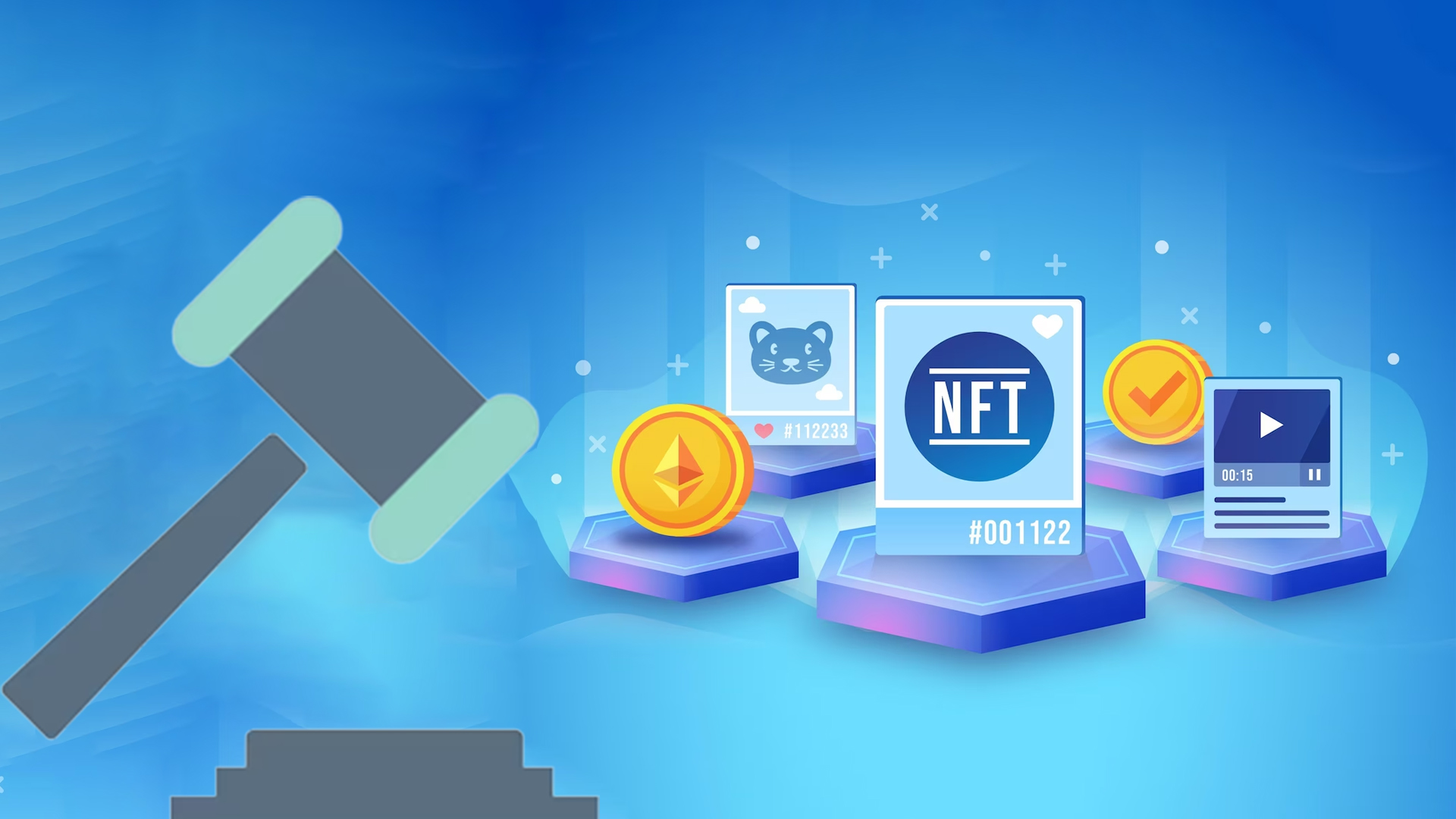Everything To Know About NFT Auctions And Types


- NFT auctions are a popular way to buy and sell NFTs.
- Some of the common types of NFT auctions are open auctions, closed auctions, reserve auctions, and classic reserve auctions.
Understanding NFT auctions is one of the important elements of learning how to do NFT transactions. It’s a popular method to buy and sell NFTs. Auctions allow users and sellers to get the best deals for their digital assets.
Here’s everything to know about NFT auctions.
What Is The NFT Auction?
NFT (Non-Funglibe Tokens) are digital assets like in-game assets, tokens, did-it photographs, and other similar assets. These are blockchain-based assets that can be bought, sold, and even collected. NFT auctions are the same as normal auctions in that buyers bid against each other to purchase digital assets.
In short, NFT auctions are used to buy and sell the NFT through bidding.
Different Types Of NFT Auctions
- Open Auction
Open auctions are also known as real-time bidding (RTB). In this type of auction, the price of an asset is decided in real-time. Before organizing such types of auctions, sellers make sure that all potential buyers are informed and are present at the time of the auction.
The open nature of an auction creates an interesting environment for buyers to sell the asset at higher prices. These types have some advantages, like a lack of transparency and the fact that only the buyer is aware of possible prices.
- Closed Auction
Closed auctions are exactly the opposite of open auctions. In a close auction, buyers ensure that all the potential buyers are invited. The only difference here is that the buyer has control over and can participate in the auction.
Similarly, in a closed NFT auction, only selected people are allowed to participate.
- Reserve Auction
A reserve auction is a type of auction in which the seller sets the ‘reserve’ amount. Below that amount, buyers don’t accept the deal. Such a type of suction is the best option when sellers don’t want buyers to undervalue their NFT.
In other words, reserve NFT auctions are similar to any other auction; the only difference here is that if the reserve amount isn’t met, then the seller will not sell.
- Dutch Auction NFT Sale
The Dutch auction NFT sale is a unique auction concept. In a style auction, buyers start with the highest possible value and then gradually decrease until someone is willing to buy. These types of auctions are useful for low-value assets such as game items, digital tokens, or game collectibles.
- Classic/ Timed NFT Auction
As the name suggests, Classic/Timed auctions are traditional auctions. In this type of auction, sellers set the base price and buyers are allowed to bid. Whoever bids the highest wins and owns that particular NFT.
If NFT has no potential buyer, then the seller doesn’t necessarily have to sell the asset. In other words, it is a type of traditional auction. Due to their familiarity, classic auctions have a higher number of participants.
Conclusion
NFT auctions are similar to any other auction; the only difference is that items sold/bought here are digital. Like any other auction, there are several types of auctions, such as classic auctions, open auctions, closed auctions, and reserve auctions. Each one of the types has its own unique features.
Recent Posts
BlockDAG And Best Wallet Presale Participants Receive Free Skyren DAO Airdrop
Token airdrops have historically introduced investors to new blockchain projects. However, many distributions fail to…
Skyren DAO Token Surge Event: Remittix And Lightchain AI Communities First To Benefit
Airdrops have traditionally been used to introduce new investors to blockchain projects, but their effectiveness…
Bitcoin ETF Approval? Old News. Here’s Why Skyren DAO Could Outperform BTC 10-fold
The approval of Bitcoin ETFs was one of the most anticipated events in crypto history,…
Qubetics And Rexas Finance Holders: Claim Your 500 Free SKYRN Tokens Now
The blockchain space continues to evolve, with projects pushing security, scalability, and user engagement to…
Cardano Skyren DAO And Remmitix Potential Highlighted As Market Optimism Rises
As the cryptocurrency market recovers from recent volatility, several projects emerge as strong contenders for…
Cardano And Litecoin Ready To Rally: Analysts Predict 10x Gains For This Newcomer
The cryptocurrency market is showing strong bullish signals, with many altcoins poised for significant gains.…


